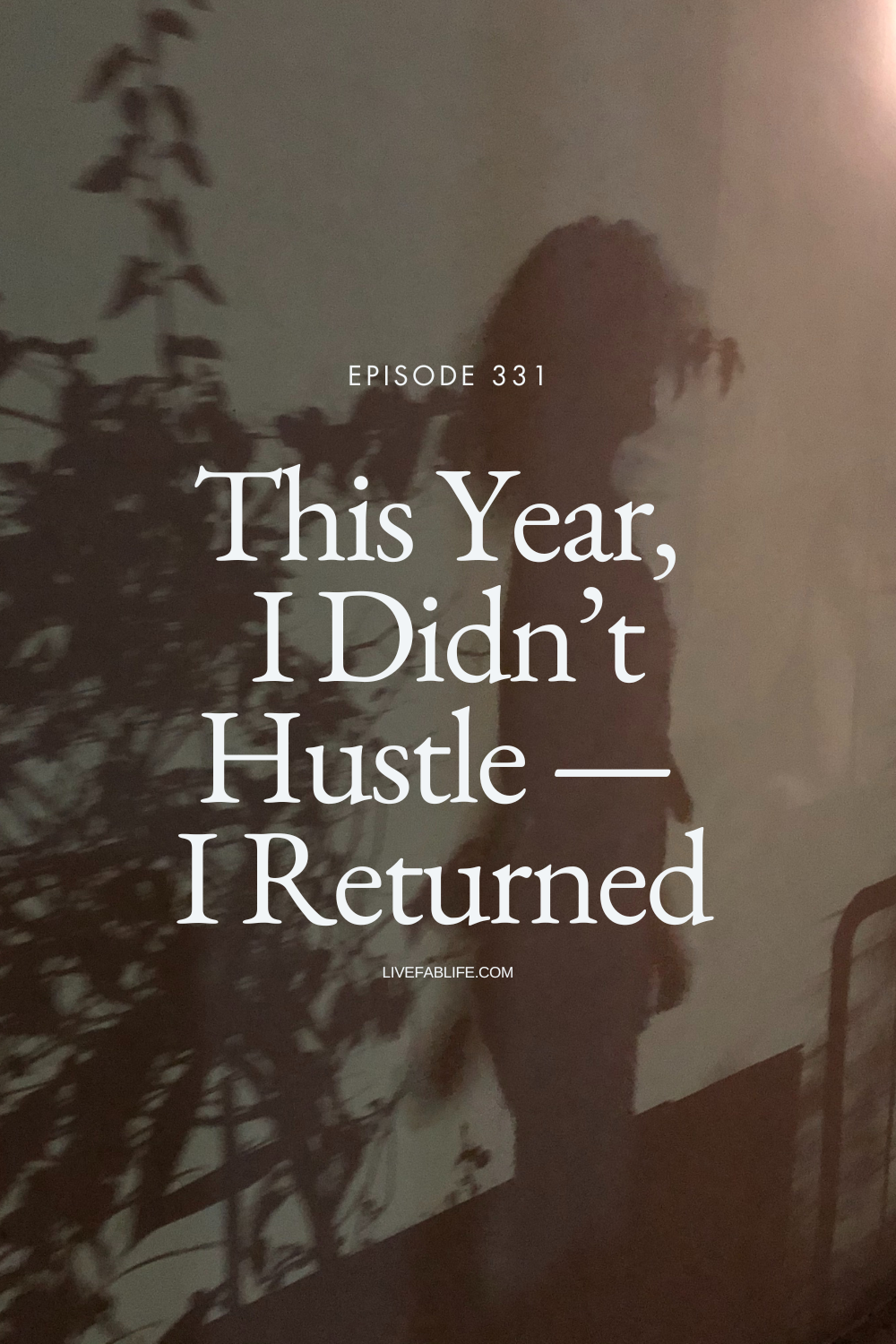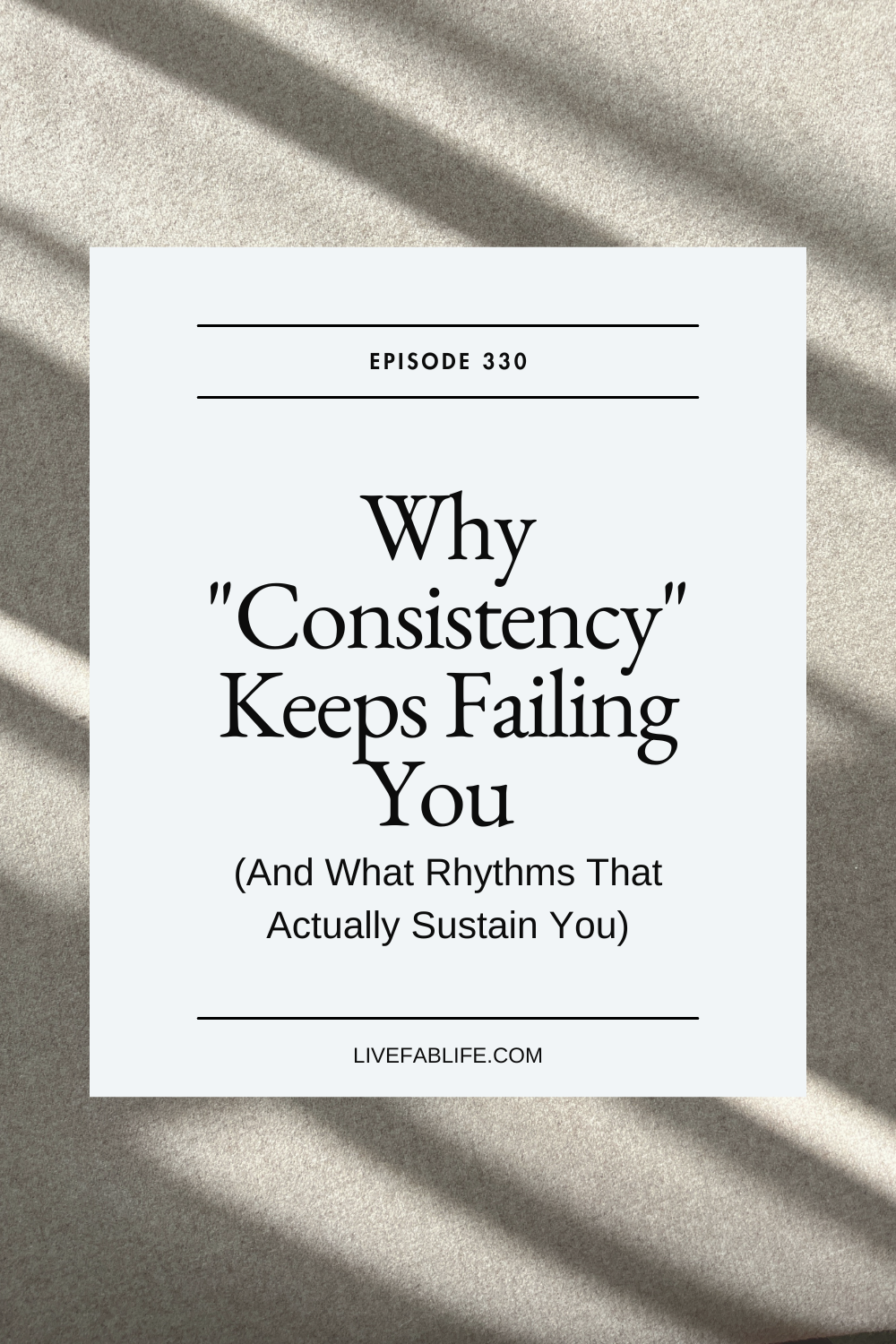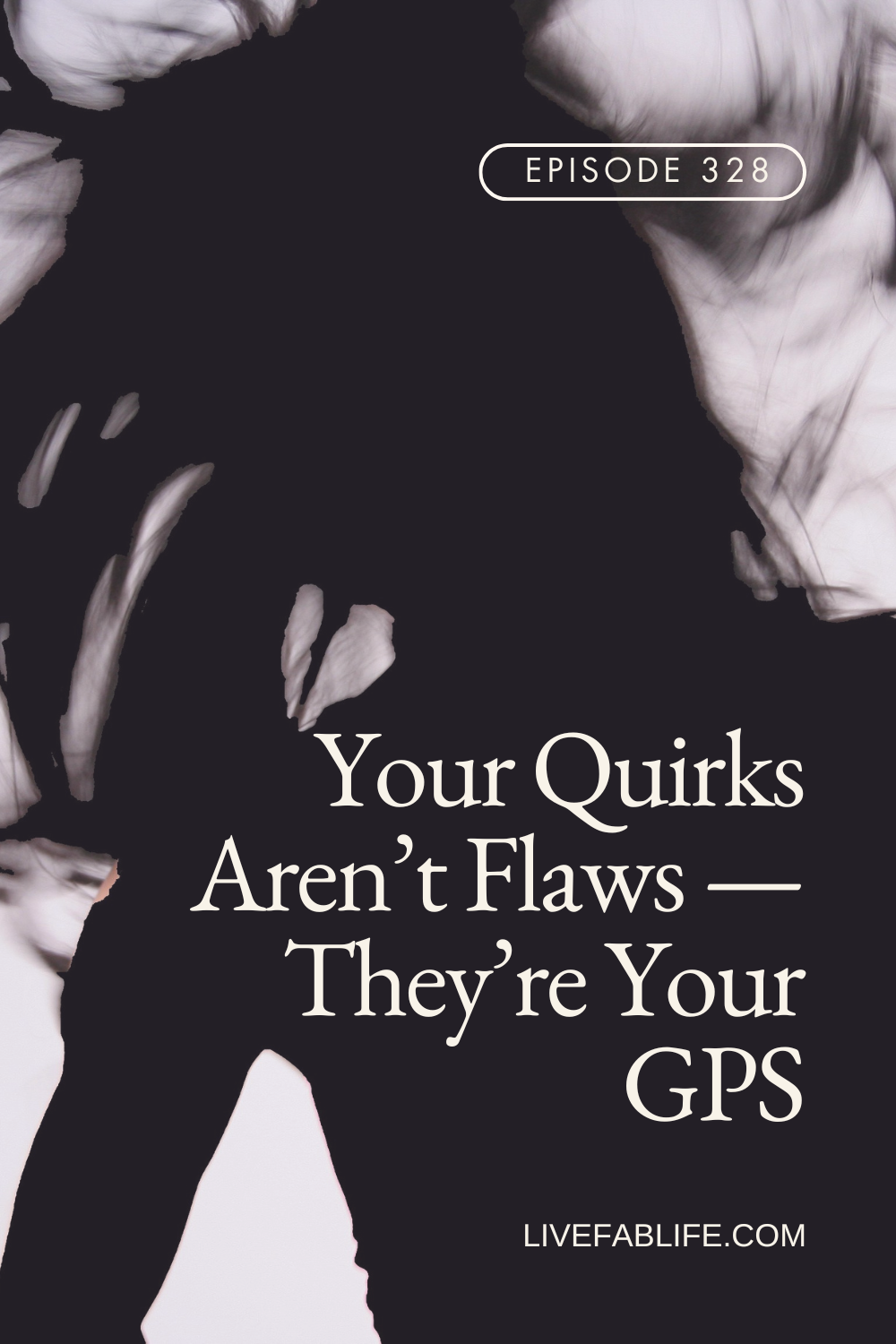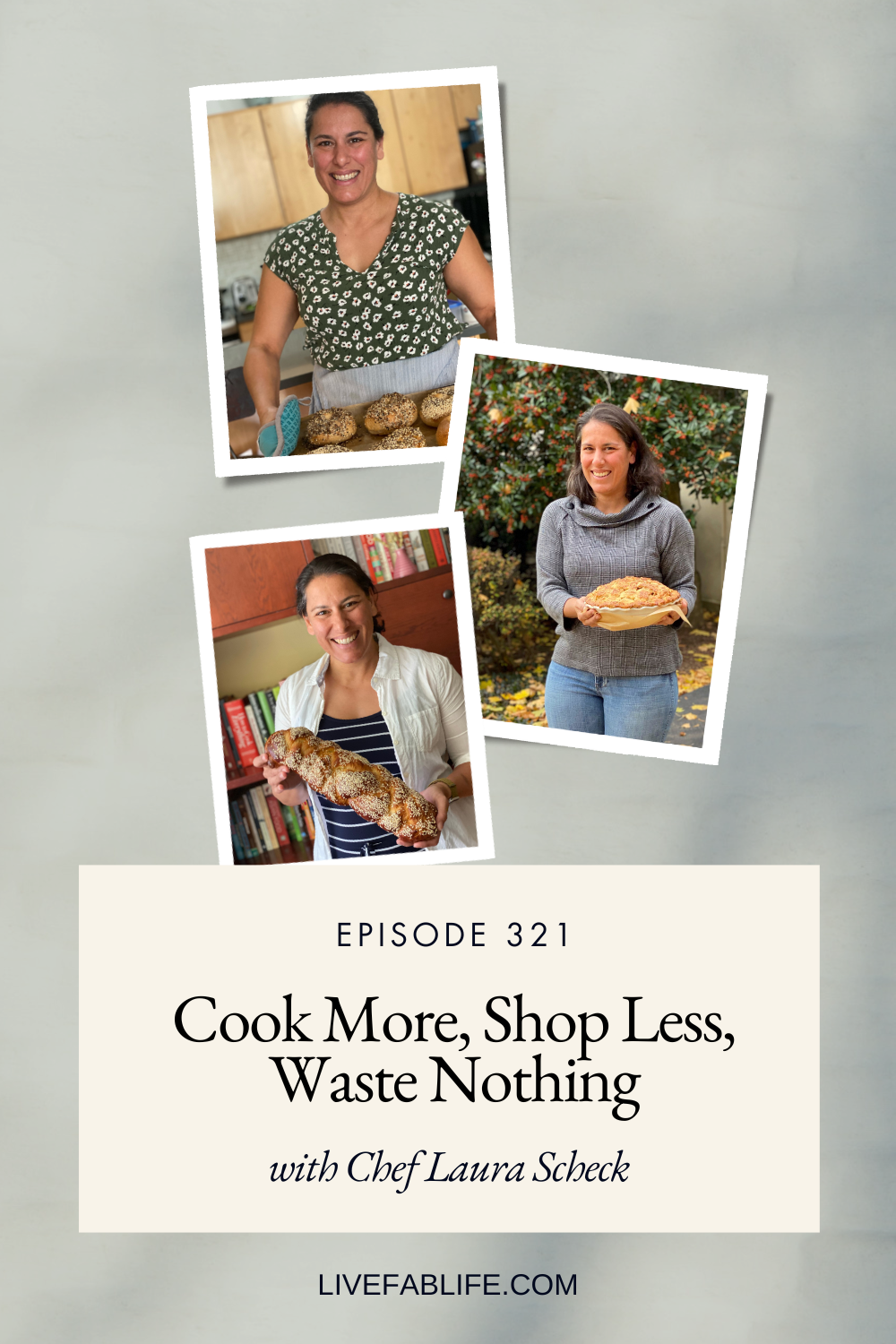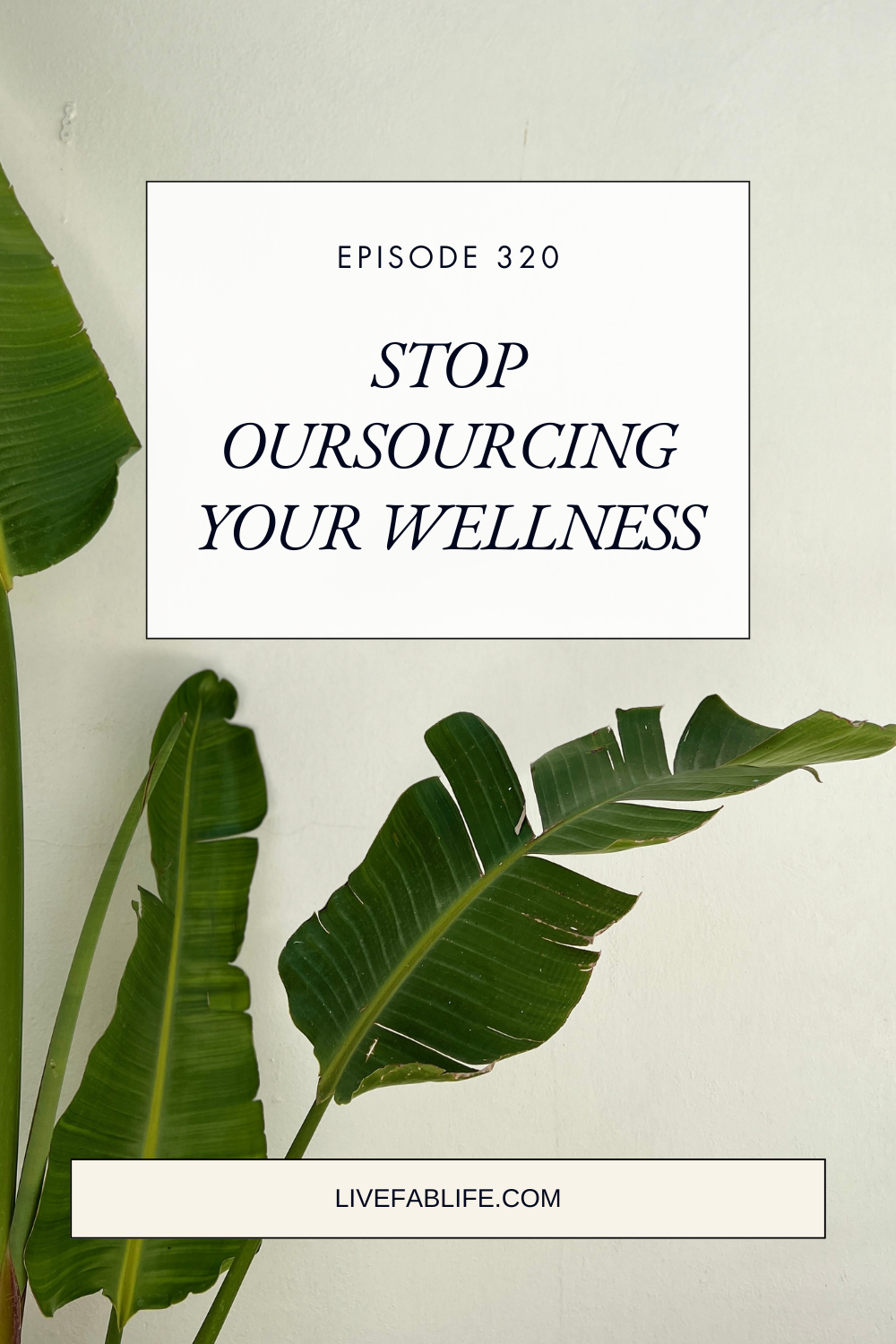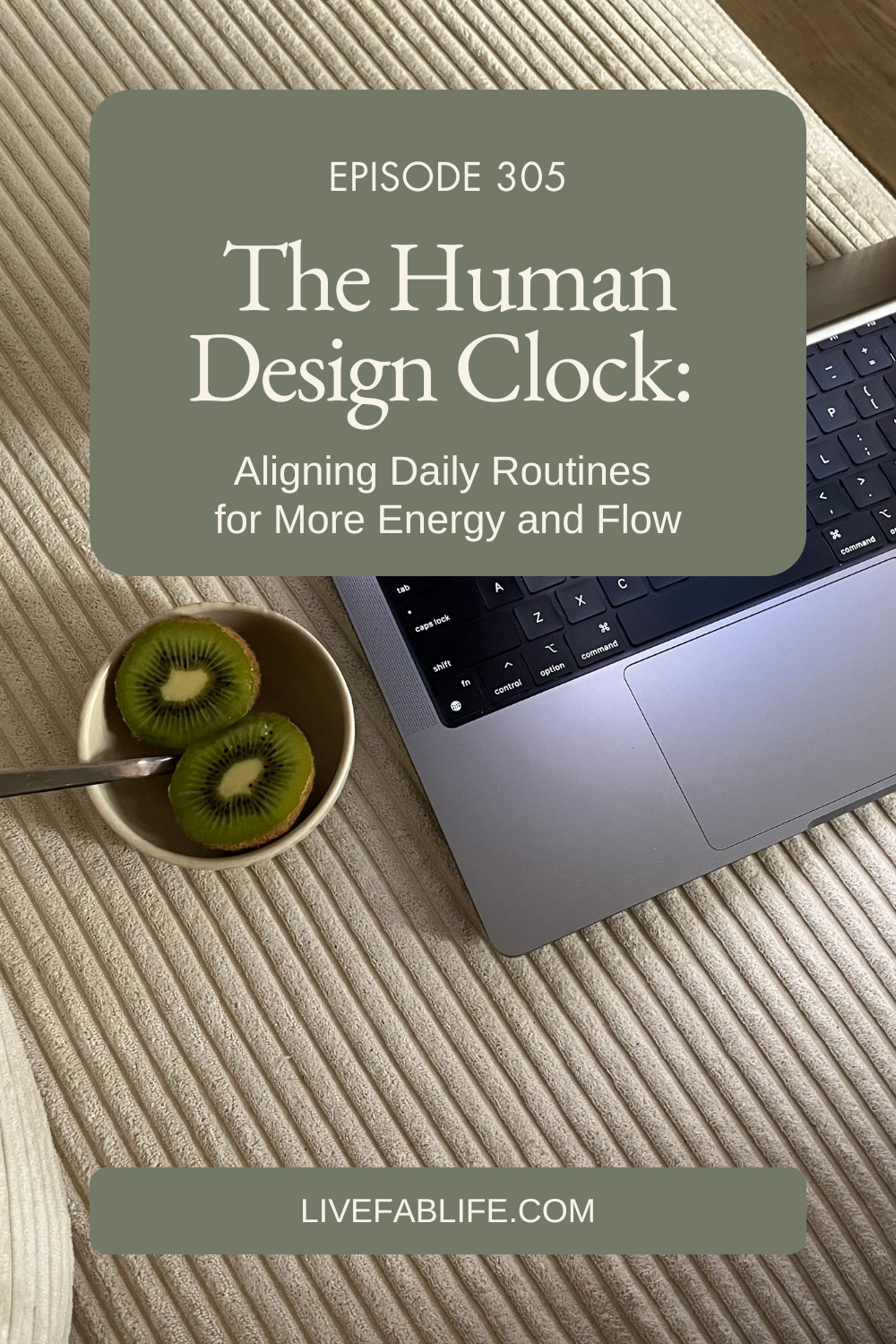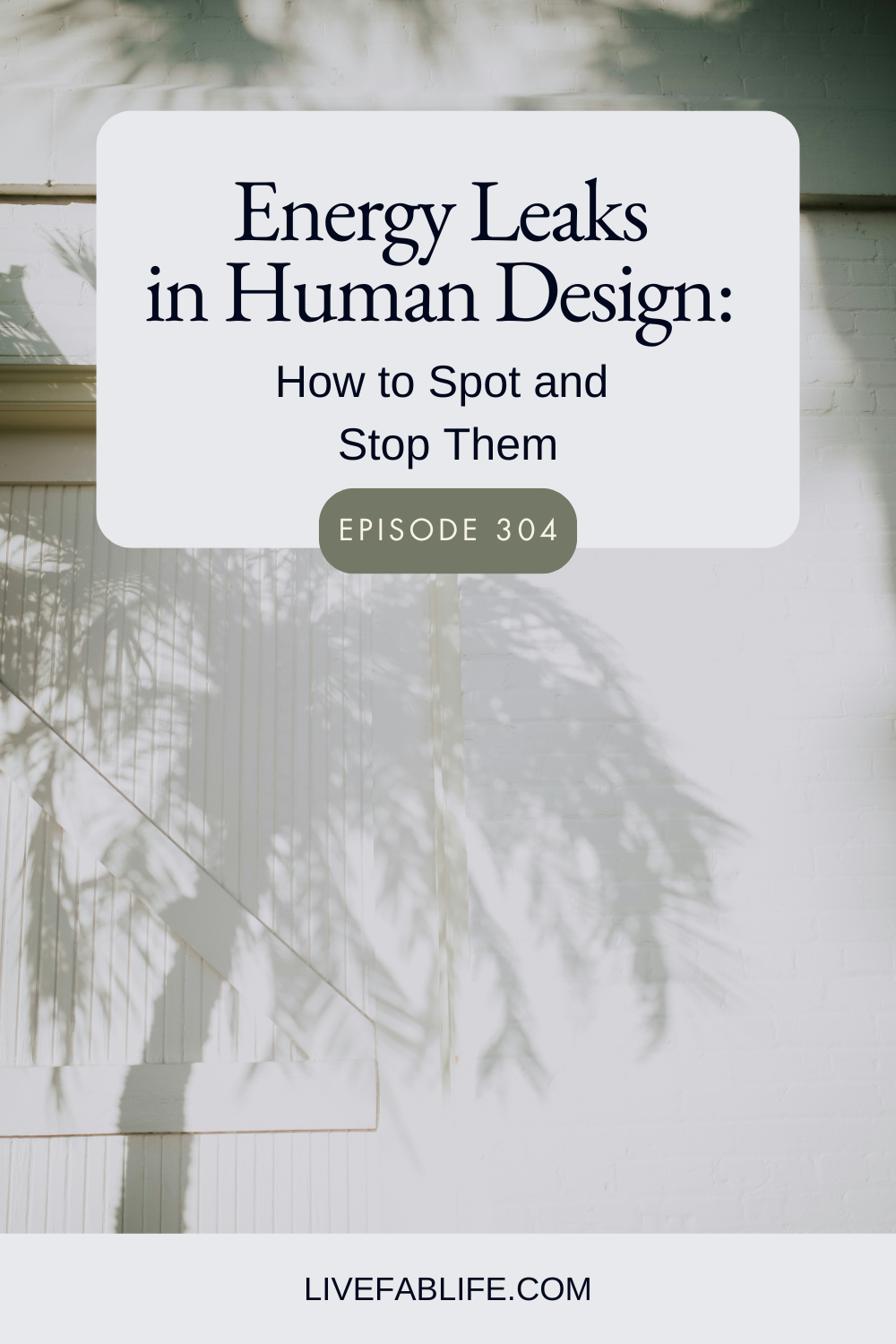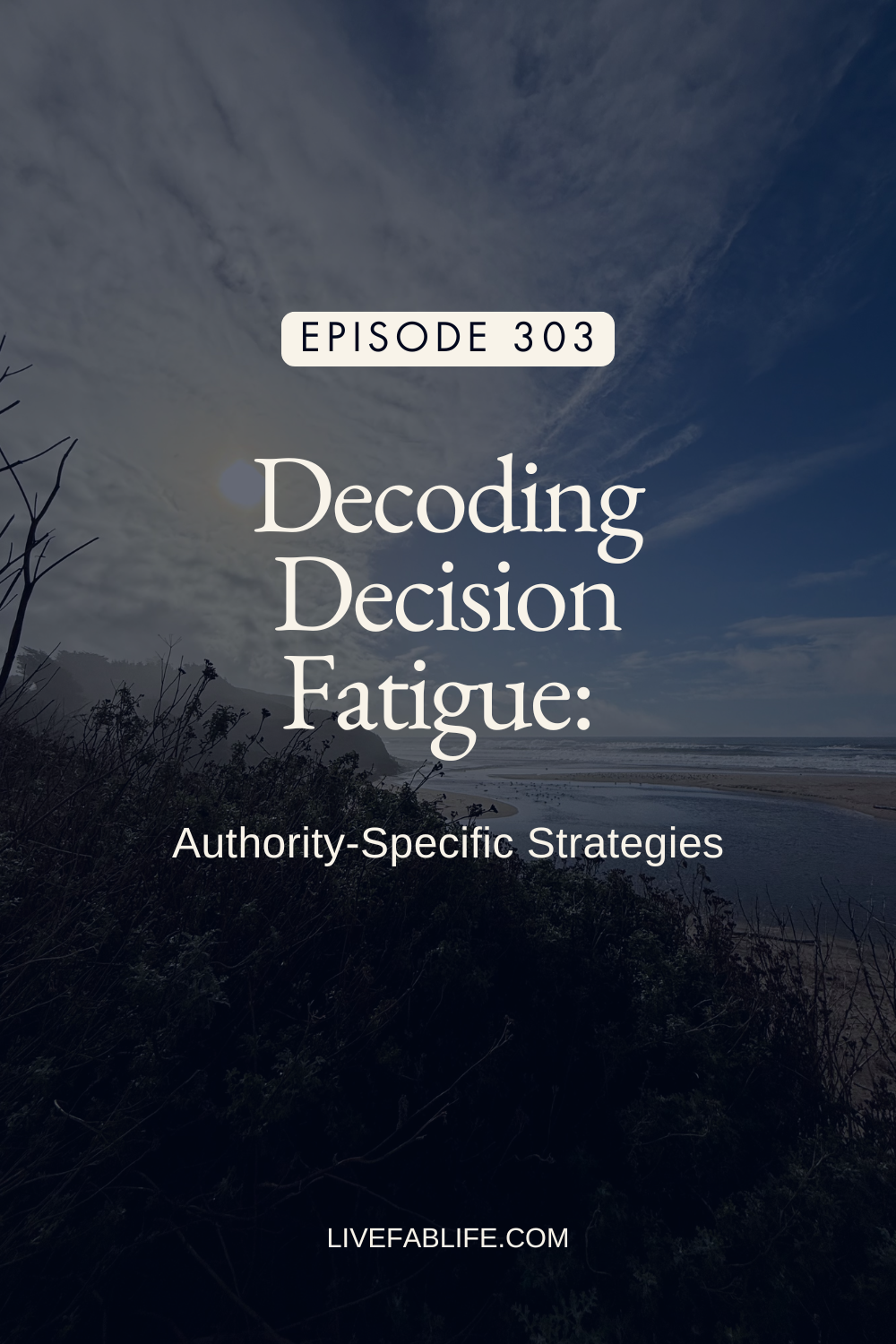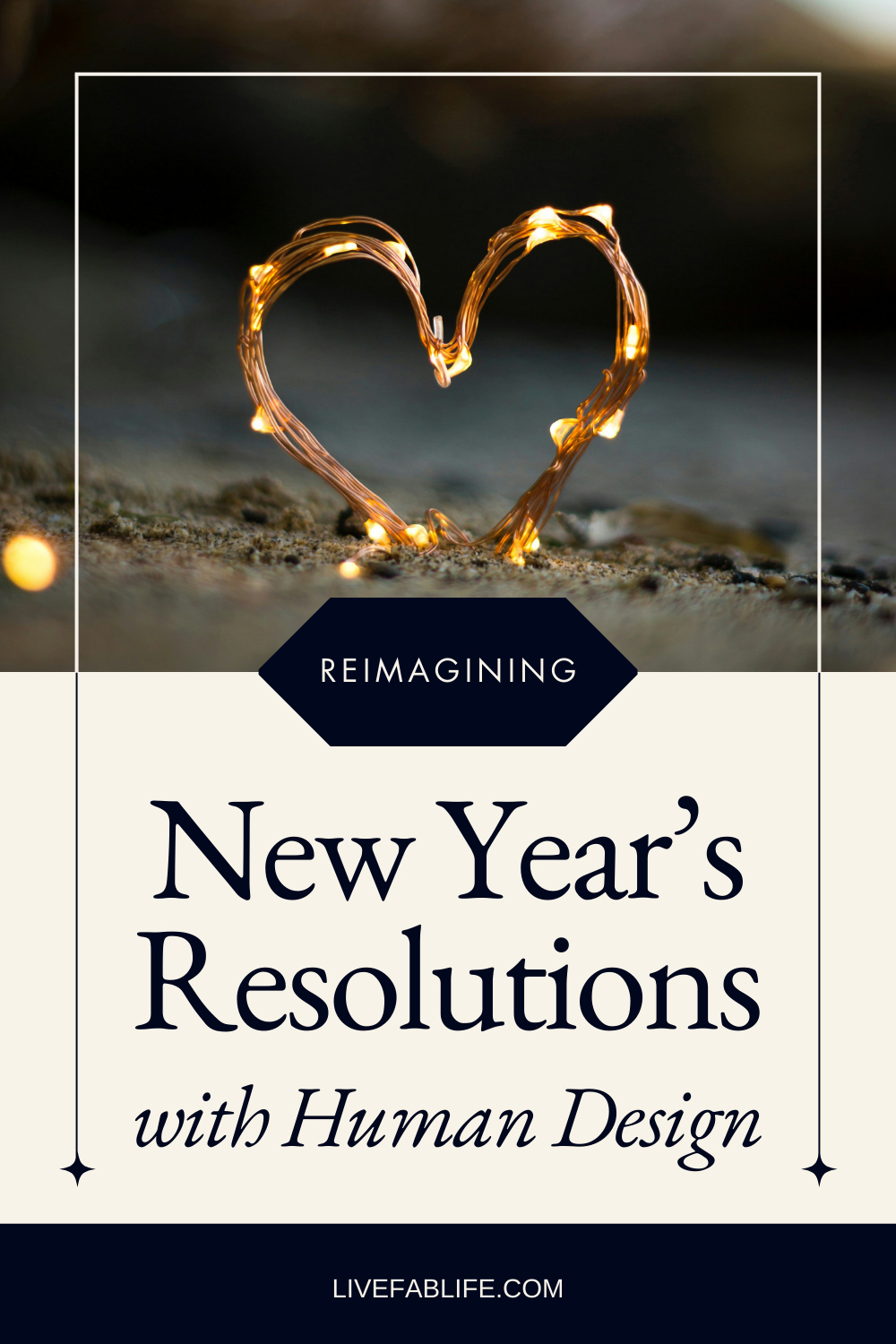Episode 165: How Do You Listen to Your Body?
Just “listen to your body.” Haven’t we all heard this before? But what does it even mean? And more importantly, *how* do you even do that?
It’s a question I’ve asked myself for the better part of a decade while dealing with sports injuries, recovering from adrenal dysfunction, and a variety of circumstances.
In this episode, I share how confusing and overwhelming this question felt, how I came to realize that in many ways it’s a skill that not everyone has developed, and how I’ve come to learn what “listening to my body” means to me - and the tools that taught me how to do so.
Episode Highlights:
Why listening to your body is confusing
What it means to listen to your body
How I learned to listen to my body
The tools that taught me how to do so
Listen to the Episode:
Mentioned in the Episode:
Connect with Naomi:
Share the Episode:
“I was told to “listen to my body.” I found that to be very confusing, and extremely frustrating because I didn’t know how to do that. I didn’t know if I was hearing what my body was actually “telling me”, versus what my mind and ego wanted me to hear. Was my body, in fact, telling me that it’s healed? Or was it just what I wanted to hear? I remember asking myself so many times, “How do you do that? How do you listen to your body?”
Read the Transcript:
Hi, there, and welcome back to The Live FAB Life Podcast. I'm your host, Naomi Nakamura.
I want to start this week's episode out by telling you a little story about some past personal experiences that I've had.
It was probably between 2008 or 2009. And then in 2015-16, those were the years that I was hardcore, really into training for endurance events, a lot of long distance running for half marathons and marathons. I've shared this part of my life in many different past episodes, because it's such a huge part of my story.
During those years, as you can imagine, I experienced a lot of injuries, a lot of pulled hamstrings, IT band issues, plantar fasciitis, strain calves, you name it, I probably had it.
The hard part, having never been an athlete before and not really understanding the rehab process, was not being in tune to my body at all, previous to this period of my life.
It was really hard for me to know, when it was time to come back from injury. When it was time to say, “I'm good, I can get back into training” or “I'm not quite there yet, I need to let things progress a little bit more slowly.”
And as you know, in the world of athletics, really, in any sport, there's this beast mode mentality that comes with endorphins. It's part of the high we get from doing our sport where, “If I can do this, I can do anything!”
It's about pushing yourself beyond what you think you’re capable of. Well, when you're injured, that's a really fine line to walk.
As I struggled through those moments, and there have been many of them, my coaches, my trainers and the people in my care team who took care of me - physical therapists, chiropractors, acupuncturists, massage therapists, what I read in running magazines, what I heard from people that connected with on social media - it was all the same thing – “Listen to your body.”
I found that to be very confusing, and to be extremely frustrating because I didn’t know how to do that. I didn't know if I was hearing what my body was actually “telling me”, versus what my mind or my ego wanted me to hear.
Was my body, in fact, telling me that it's healed and it's good to come back from injury? Or was it just that I wanted it so bad that I was just hearing what I wanted to hear?
I remember asking myself so many times, “How do you do that? How do you listen to your body?”
I asked so many different people, and no one really had an answer. At least not one that resonated with me. In hindsight, I realized that no one answer ever was the same. Everyone had their own different ways of coming to that.
I haven’t run double digits in probably about three years. But till this day, I asked myself that same question, “How do I listen to my body?” And I think in asking myself that over the past 10, 12, 13 years, what I've come to know is that what that means is really tapping into our intuition. Whether that be by asking ourselves that question in the context of recovering from injury or illness, or whether that be through intuitive eating, or seeking answers to questions about what direction to take in life, whatever these questions we ask ourselves.
How do you know if it's your intuition, or your body talking versus your mind, your ego?
What I've come to believe is that this is a learned skill that takes years to learn. Perhaps even a lifetime. It's not something that we just suddenly know, or we just suddenly learn, there's no class or program that we can take where we come out of it and say, “Oh, now I know how to do this.” It's not like that.
It's also not this place that we arrive at where we can say, “Oh, I'm fully tapped into my intuition from here on out.” That's not how it works.
I believe that this is a skill that we learn, and that we have to continually work on. There's always going to be something to learn. And it's going to be something that we always need to practice and refine.
I also believe that there isn't one answer of learning how he skill of how to listen to your body.
But speaking for myself, as a left-brained, logically thinking person, I needed a framework, if you will, to help me learn this skill.
So today, I'm going to share with you what I’ve found that’s helped me. And I'm going to this in the context of recovering from injury because that's really why I started asking myself this question to begin with.
“How do I listen to my body? How do I know how to do that?
The first thing I realized that I had to do, especially in the physical context, is to clear away things that blocked my ability to tune into and hear the messages that my body is sending me, or the messages that my mind is sending me, i.e., what's my intuition telling me.
First, I had to clear the junk. Physically, I needed to clear out the things that might be causing inflammation, like junk food, processed foods, sugar, all of those things that can cause brain fog, cloud my thinking, or just really cause inflammation in my body, especially if I’m coming back from injury or illness.
I needed to clear all these things out so I could reset my baseline, and really learn, “Okay, this is what feeling good feels like. So that I know, if I don't feel this way, I'm actually not ready to come back from injury.”
Doing that naturally balanced my blood sugar, because when you have unbalanced blood sugar, that's when the inflammation and all of these other problems start.
So that's the first thing that I found that I needed to come back to, when I'm trying to learn how to listen to my body, and beyond that my intuition. I found that I needed to clear out that stuff in order to have a clear mind to know what my intuition is telling me.
That’s where, in my coaching practice, the 21-Day Sugar Detox comes in. Because that's essentially what that program does, it helps you clear out the stuff that causes inflammation and balance your blood sugar.
In many ways, I also treat it as an elimination diet.
A lot of times I found myself asking this question when I was trying to figure out what was causing some hormonal imbalances while I was trying to recover from hypothyroidism and adrenal dysfunction.
Part of that process involved trying to identify and understand what food sensitivities or intolerances I had.
Because if I could figure that out, and make the necessary adjustments to my plate, and not have to struggle with those things, to reduce and clear out inflammation, then that's going to help me feel better and have more. It's going to help me sleep better and just feel better overall.
One of the best ways to figure out what those reactionary foods are, is by doing an elimination diet. A byproduct of going through that process, is tapping into your eating practices intuitively.
Its helped past clients address some emotions that they were bringing to their plate that they weren't aware of, and that helped them learn how to make more mindful choices of what foods they were putting in their body.
Oh, and they were also able to identify foods that were reactionary to them, and then take whatever steps they needed to address and repair so that they eventually could enjoy those foods again.
So that was the first step - to clear away the things that blocked my ability to tune in to hear the messages that my body was sending to me. Physically that meant clearing out the junk foods, the processed foods, the sugar, and what that framework looked like was the 21-Day Sugar Detox and this is how I help people who I work with in getting them through this step for themselves.
Secondly, taking the functional nutrition approach of asking, “Why is this happening?” From the mind and emotional perspective, I had to ask myself a lot of questions – “Why am I always injured? Is it because I'm not a good athlete?” These are actual questions that I asked myself.
“Is it because I'm not working hard enough?” If you know my story, I actually overtrained but this is the thought process I had. “Am I mentally weak and not as strong as other athletes?”
Then from the physical perspective, I had to ask myself, “Do I have a predisposition to a condition that contributes to my being injured all the time? Am I doing something that, despite clearing out the junk food and addressing what's on my plate might still be causing inflammation that's then causing my body to weaken, making me prone to injuries? Or am I obsessing so much over this, and overthinking it (which I’m prone to do) to where this is actually now a problem?”
Then I had to ask myself, “Is this really the right type of exercise, at this intensity, for my body right now? Maybe it was okay for me a few years ago, but is this okay for me right now? Are there other factors that are interfering with my ability to perform, like sleep, stress burnout?”
Taking a functional nutrition approach is asking “Why” not just “what” is happening. “Why are these things happening to me?”
As I asked myself these questions, all of the other questions came about. So, then what?
That's going to depend on your individual situation, your answers to those questions, and what questions you're asking yourself because it’s a very, very individualized approach.
First, take the step of clearing and resetting your baseline to see, “Okay, what feels good? What is my baseline here that I start with?”
Then that way you can measure, “Am I there yet? Do I feel that? Okay, yes, my body is actually telling me, it's okay to move forward.” or “No actually have a little while to go.” It's understanding that baseline, right”
And so again, first, clear out the things that block, then secondly, ask, not just “what” is happening, but “why” is this happening.
Looking at it not just from the physical perspective, but also the mind-body-spirit perspective. Then, to really do that, to really tune in, and to really listen and to really hear, and to start to build that awareness, because as you're doing this, and going through this process, what you're doing is you're building an immense amount of self-awareness.
I've come to learn that, and really, this part of it has really happened to me over the past year as we all lived through this pandemic, is that tuning in and really listening to your body, what that really requires is a lot of observation.
Self-observation, and doing it in a way that you're objective about it.
Observing with non-judgement.
Just taking note, and observing yourself, how you function and interact with the world.
This is where you ask questions. You're asking yourself questions like, “What am I learning about myself? What is the situation? What is this experience teaching me about myself? What can I learn here? How am I being influenced?”
When you're wondering if you're hearing what your body is telling you versus what your mind or your ego might be telling you, this is where I think it's really critical to ask yourself, “How am I being influenced? Am I being influenced because this magazine here is telling me that I just need two weeks of res and then I'm good and not burnt out anymore?”
Or is it because someone's telling me this whether it be a social media influencer or my coach?
Where's is this learned behavior coming from?
How am I being influenced? How am I processing this information? This is what this saying? Am I processing it in the way that it's intended, or am I processing it in a way that gets me to hear the answer that I want to hear?
How am I making decisions about this? Am I making a rash decision? Am I making a spontaneous decision? Am I being methodical about it? Am I really evaluating all of the possible outcomes? Do I have clarity in making this decision?
Can you see where this is leading to? Because really, what the framework for this that’s helped me answer these questions has been Human Design.
Human Design has been the framework that's helped me to learn and how to see what the nature of me is.
What are my natural gifts? What is my baseline? And then what have I, or how have I been conditioned? What are things that I have maybe come to believe about myself? Whether it be limitations, or possibilities that are innately true about me? What do I need to unlearn? What do I need to repair?
Again, to answer these questions, I needed a baseline and in the absence of truly understanding who I innately am versus what I’ve become conditioned to believe.
That's where Human Design comes in for me and my Human Design gave me the baseline of a place to start.
It doesn't exclusively define who I am, but it validates things that I already knew to be true about myself whether I was conscious of it or not. Whether I acknowledged it in the past or not, whether it was acknowledged by someone else.
My Human Design really give me the insight, the inner guidance, and truly the permission, to be who I am. Knowing that, and having that information and that permission helped me to tune in to how it is that I listened to my body and to be able to really recognize the messages that my body was telling me, what my intuition was saying versus what my ego wanted to hear.
I'm on 1 / 3 Splenic Projector so I learned that it's actually okay for me to be an eternal student who always wanting to be learning something because that’s a natural gift that I have.
I've learned that through my 3 line it's okay for me to want to do things like 30-day challenges or to start new training cycles because I'm always asking myself, “What's possible? If I follow this training plan as its intended, what might be possible for me? If I do this 30-day challenge what’s possible? What can my body feel like if I do yoga for 30-days?
Because with my 3 line it’s all about learning from trial and error, learning from personal experiences, and that where my wisdom comes from - experimentation
In the past I've always been made to feel guilty like, “Oh you're always looking for a new 30-day challenge” or “You're doing yet another cycle.”
I get that's not something that's innate or natural or appealing to other people, but it is for me and now I understand that “Oh now I understand why it is and it's okay for me to be excited and to want to do those things.
Being a Splenic Projector and having a Splenic authority, it's okay for me to listen to my instincts. Knowing that happens in a moment of things that I can't always explain, to have this trust about myself, that discernment, and recognizing that this is a gift that I have, that not everyone has, it's okay for me to really feel like I need rest.
And that I instinctively want to give advice to other people. These are all aspects of being a Projector, and all of these things make me a 1 / 3 Splenic Projector. My friend what I really want to impart on you is that this was a new information for me that I learned the first time I had a Human Design reading. But what it did was make me feel okay to accept these things about myself that I already kinda knew to be true.
To not feel guilty, embarrassed or apologetic because while in the past some parts of these things I was made to feel guilty about, they're actually gifts that make me unique.
These are experiences and things that I can offer the world that other people might not have, and this is something unique that I can bring to the table.
This is how I have come to learn to listen to my body - through these frameworks of clearing out what might be blocking it, and having a framework that for me is:
- The 21-Day Sugar Detox or a program like it
- Functional Nutrition
- Human Design
These are all very incredibly empowering frameworks that took me from feeling guilty or embarrassed about liking doing challenges only to find out that, “Hey it's actually okay for me to do because this is my nature - how I come into my wisdom.
This is huge for me and it's really come to help me learn how to trust myself because in those moments of discernment, that is my intuition talking to me and if I listen to what my intuition and my discernment says then I’m listening to my body. I innately know what's right for me.
Now, it's one thing to have all of this information, but it's another thing to actually do something with it.
So, if you already haven't had your Human Design reading, or if you'd like to learn more about how I can help you with Human Design, or the 21-Day Sugar Detox, or Functional Nutrition, definitely go to my website at www.livefablife.com/services. I recently revamped that page, so I encourage you to check it out, because it’s all new as of March 2021.
If you've already had a Human Design reading, and you want to explore how to go about integrating this, then reach out and I can share with you more about my coaching services.
And if this is the first time that you are hearing about all of this, I actually wrote a guide. It's kinda like a paper.
It talks about making the connection between Human Design and Functional Nutrition, in that context, and moving in the 21-Day Sugar Detox, how Functional Nutrition and Human Design are very complimentary and how they can actually provide a very powerful connection.
And if you'd like to read more about that, including three case studies of actual physical conditions that are very common that I know a lot of people especially women have, and how you can use both of these frameworks, Human Design and Functional Nutrition to address them together, then download my free guide.
It's right on my website, www.livefablife.com. It's on the homepage and there's also a pop up that comes up when you visit that page.
Now I want to hear from you. I want to hear, how you listen to your body?
I know we've all been asked this question before.
I know we've all asked ourselves these questions.
I know that there's different approaches.
So, I want to hear from you. I want to hear how do YOU listen to your body? What's worked for you?
If this is something that you've really not dived into, or this episode is opening your mind to a couple of new ways to do that, I'd love to hear from you. You can come over to the website and leave a comment on the show notes for this episode at www.livefablife.com/165 for Episode 65.
Or come on over visit me on Instagram at @livefablifewithnaomi. I'd love to hear from you.
Thank you so much for your time, as always, and thank you for listening. I look forward to hearing from you and I'll see you right back here next time! Bye!
Naomi Nakamura is a Functional Wellness & Human Design Coach. She helps women who struggle with stress, fatigue, and burnout find freedom and empowerment by optimizing their health, finding balance, and upgrading their energy so they can live life on their own terms.
Combining her diverse professional background, and her unique approach integrates Functional Nutrition and Human Design she guides clients on a highly individualized journey of self-discovery, observation, and integration by removing physical, mental, and emotional confusion and overwhelm, simply taking them back to the very basics of health through their Human Design.
She believes that when our bodies function optimally, our personalities and souls can shine through everything that we think and do with empowering clarity and ease.
Naomi resides in the San Francisco Bay Area and can often be found exploring the area with her puppy girl, Coco Pop!
Connect with Naomi on: Instagram
| Pinterest

